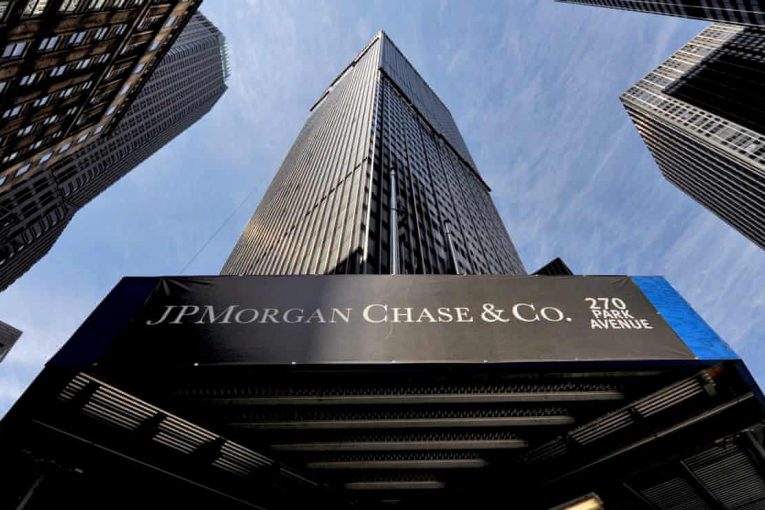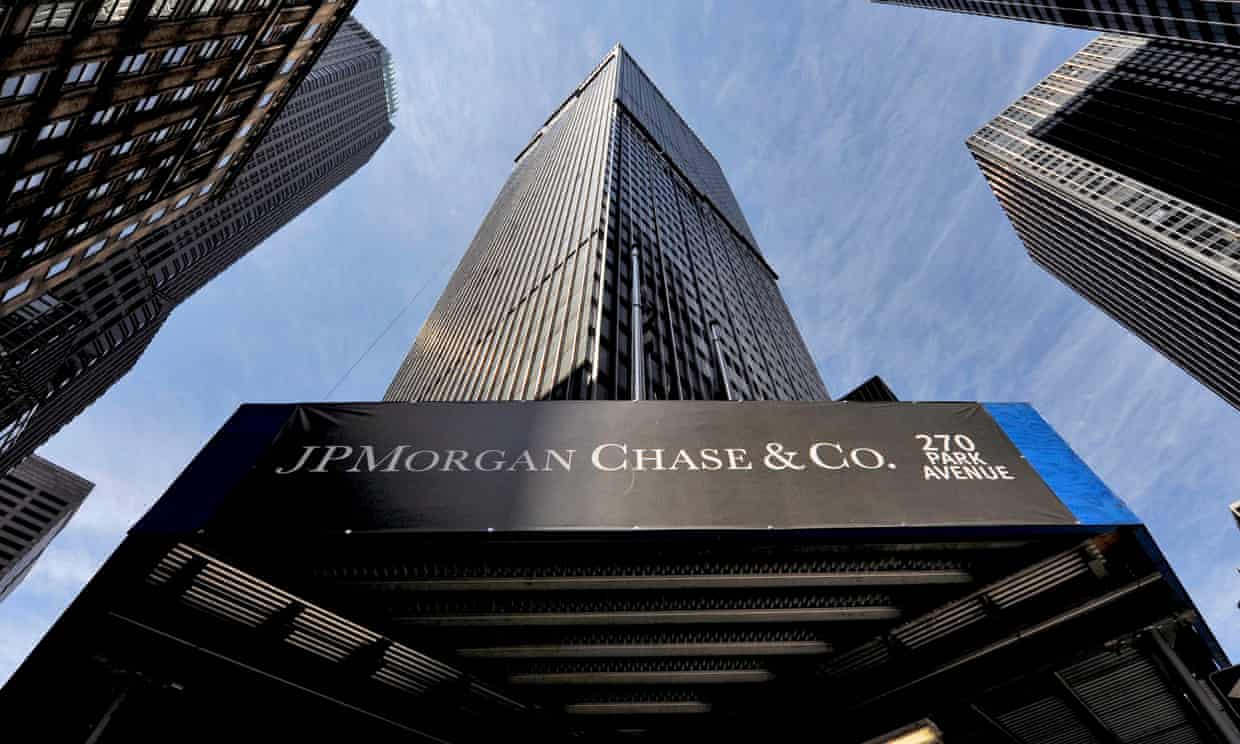

By Jacob Vito
Earlier this month, JPMorganChase CEO Jamie Dimon released his annual letter to shareholders. But unlike what may have been initially expected, Dimon used the opportunity to go past figures and margins to talk about concepts like racial inequality, political unrest and working towards the greater good.
Statements like this have become far from unusual from Dimon, who has become a more progressive face among America’s CEOs. Recent actions by Dimon and others like him perhaps signal a new mindset for America’s wealthiest. Some have argued that such sentiments show the potential for kinder, more progressive executives that ought to become the new force for good in America.
But they shouldn’t.
Because even after all of his posturing towards forward-thinking ideas and stopping injustice, Dimon was paid $31.66 million during one of the worst economic crises of the last half-century. While millions suffered and starved Jamie Dimon walked away with a paycheck worth more than they’ll earn in their lives.
And Dimon’s not alone. During the pandemic, the world’s billionaires saw their wealth increase by $5 trillion total, with those like Tesla CEO Elon Musk raking in over $100 billion in wealth last year alone.
Such data shows a massive spike in the wealth of the already ultra-wealthy, but this kind of economic stratification is far from new. Wealth concentration has been steadily rising for the past 40 years, and those trends show no signs of stopping. In fact, the rich are on trend to be richer than they’ve been for the last 80 years.
However, let’s not dance around the obvious: wealth doesn’t come from nowhere. If one group is suddenly gaining large swaths of money, others must be losing something. And they were because while the richest Americans gained trillions of dollars, they pulled that wealth from America’s poorest.
Both across the years and during the coronavirus pandemic especially, the share of wealth controlled by non-wealthy Americans has been shrinking and shrinking. Wages compared to productivity have stagnated and formerly attainable financial goals like home or vehicle ownership are now slipping out of reach for much of the modern middle class.
COVID-19 has undoubtedly multiplied these trends. Due to lockdowns, many have lost the jobs they needed to pay their bills. And because of the restructuring and automation that occurred during the pandemic, it’s likely that many of those jobs won’t come back even after restrictions have been lifted.
XYZ. But through all of this data, an important question arises:
Why are we letting them get away with this?
There’s a famous quote from the American author John Steinbeck: “Socialism never took root in America because the poor see themselves not as an exploited proletariat but as temporarily embarrassed millionaires.” We subconsciously hope that one day we’ll be the next Bezos, or Carnegie or Jobs, exploiting millions so that we can take our turn on top of the pyramid.
There’s only one problem with that: at any time, out of a country of 300 million, there can only be one richest man. The chances for the bulk of the population of finding real wealth are unbelievably slim. So realistically, we’re all better off in a fair economy than hoping that we win in an unfair one.
Put succinctly, for this country to be better we need to fundamentally shift the way we think about the economy from a position of greed to one that allows for a fairer world.
I won’t be the first to say that a change like this takes time. Such a shift in the American mindset may require years, if not generations, but that doesn’t make it any less necessary. Indeed, as this trend of growing wealth inequality pushes on, the fight for a fairer economy will only grow more important with time.
As long as we continue to hopelessly grasp that dream of success in a rigged game, we’ll continually miss the opportunities to better this country that lay right in front of us. Because today, there’s only ever one person who can own the world. But if we work to craft something better, if we build an economy that is fair to those who really labor in it, then we can all be kings together.

Jacob Vito is a first-year Community and Regional Development major at UC Davis. He is from western Pennsylvania.
Support our work – to become a sustaining at $5 – $10- $25 per month hit the link:






Personally, I view this as a form of “marketing”.
That’s a subject worth exploring more deeply.
Not necessarily. But sometimes it’s extracted from the natural environment, as well.
Not necessarily. “New” wealth can be created. (Again, a subject worth exploring more deeply.)
Stalin would agree with this statement.
Or, in addition, all will eventually lose… increased Nat’l debt, of inflation due to ‘just printing/issuing more $$$…
The quote can be made even to the individuals, not just ‘groups’… the pending (reportedly) Melinda/Bill Gates divorce, might be a good case study in who wins/loses… their charitable/philanthropic will likely be the first ‘losers’…
Reason I cite a “case study” potential, is that particularly if the middle class is taxed more, for arguably ‘charitable’ purposes (some would say “justice”), they well reduce their charitable contributions…
Quiz question: in the wake (pun intended) of the devastating tsunami that hit Indonesia a few years back, what entity donated the most $$$ for aid?
A) US Gov’t; B) Indonesia; C) all of Europe; D) all of Asia; E) individual Americans via faith-based, or other charities… feel free to Google for the correct answer…
Income/wealth re-distribution, with most things in life, has its benefits, and its consequences, depending how it’s done…
Interesting, on two fronts…
Current census data is 10% higher than 300 million… but that is an undercount, by methodology… and possibly also by previous Fed Admin fiat… [have seen figures, that put it at closer to 400 million, but, depends how one measures…]
Gender reference is also interesting… may be true, but focus on gender is interesting… seems to be making other “points”…
If something better means an economy that is voluntary, promotes entrepreneurship, and take cares of those who can’t take care of themselves, you could have a choice-based economy.
Choice based economy: A provider gets paid by the government when the people approves its service/products.
Comtrasting to:
Capitalistic economy: A provider is paid by the individual when that individual wants something from thay provider and can afford the price set by the provider.
Example: You are a popular but non profiting store and you want to expand. Instead of cutting cost or trying to profit more from your customer base, the government directly pays for your employees and expansion costs because the people endorse your store as a good store. You can expand your store without profiting from anyone.
Objection: “If a non profiting store gets paid, then it has no incentive to improve.”
Counter objection: “If the store is comparatively wasteful or inefficient, or low quality, the people would have approved a better store. The competition still exists, much more like an fair compeition based on merit and scholarship.”
I guess you could call this a scholastic economy as opposed to a capitalistic economy.
Scholastic economy: if you do good you get paid.